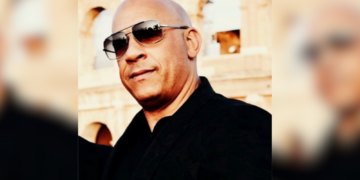When The Weeknd takes the stage, it’s not just hearts that flutter but economies too. His recent performance in Bogotá presented an intriguing case study of how concerts can become economic powerhouses, rejuvenating local communities.
Abel Tesfaye, better known as The Weeknd, is renowned for his musical prowess. However, his recent concert in Bogotá showcased another dimension: economic stimulation. Partnering with a staggering 35 companies, this wasn’t merely about music. It became an employment fiesta, giving birth to over 1,500 jobs, all cascading from a single night’s performance.
It’s not just the local fans who are drawn to such megahits; international fans jet in, keen on merging the allure of a new city with the magic of their favorite artist. This influx means airlines, hotels, restaurants, and local attractions witness a surge.
Bogotá’s economy didn’t just get a brief spotlight; it got a robust, long-term financial injection. The ripple effect meant an influx of 800 million pesos into the city’s ecosystem. This isn’t mere pocket change but an economic rejuvenation for businesses and individuals alike.
Bogotá’s picturesque charm combined with The Weeknd’s magnetism created an irresistible pull. Hotel bookings experienced a boost, with many establishments reportedly being booked to capacity in anticipation of the concert. The city’s exquisite dining scenes and vibrant nightlife, already a tourist magnet, saw a further surge. Local restaurateurs and bar owners gleefully recounted their establishments brimming with international visitors, all humming The Weeknd’s chartbusters.
But the economic ramifications stretched even further. Local artisans and merchandisers, often the unsung heroes during such massive events, also reaped the rewards. From custom-made souvenirs echoing the “After Hours Til Dawn” theme to authentic Colombian handcrafts and delicacies, everything had its moment under the sun.
The Nemesio Camacho El Campín Stadium became more than a concert venue. It transformed into an epicenter of economic activity. Surrounding businesses, from cafes to merchandise vendors, saw a significant uptick in revenue. The cascading effect meant a strengthened local economy, even if for a transient period.
Moreover, the event provided a platform for local artists and performers. As the anticipation built, many local bands and performers found spaces around the venue to showcase their talent, drawing the attention of an international audience and elevating their local stature.
Behind the scenes, the concert was a logistical marvel. Organizing an event of such magnitude isn’t just about ensuring good sound and an electrifying light show. It’s a complex ballet of transport, security, technical expertise, and meticulous planning. Local logistical companies had their hands full, ensuring that everything ran like clockwork.
From transporting equipment to ensuring that the vast array of technical gear reached the venue safely, to managing security details for a stadium teeming with fans, the event was a testament to the city’s infrastructural resilience and capability.
View this post on Instagram
Related Story: Supa Opens Up About Traveling To Colombia For Reconstructive Surgery After Botched Procedure in Dominican Republic
The “After Hours Til Dawn” tour, a 75-stop international sensation, has taken The Weeknd from the romantic streets of Paris to the historic vibes of London, and now to the beating heart of Colombia – Bogotá. But the city offered something unique: a blend of musical euphoria and a tangible economic uplift.
Artists leave an indelible mark on their fans, but only a few manage to leave an impact on a city’s economy. The Weeknd’s concert in Colombia stands as an epitome of how music can resonate far beyond the ears, reaching the intricate veins of local commerce and employment.
Breaking down the numbers, the concert’s revenue wasn’t just from ticket sales. The involvement of 35 companies indicates an expansive logistical setup, from sound and lighting to security and hospitality. Each of these sectors saw financial activity, leading to the grand total of 800 million pesos. This doesn’t even account for the indirect revenue generated through tourism, local businesses, and transportation linked to the event.
Music has the power to move souls, but in this case, it also moved an economy. The Weeknd’s performance in Bogotá was a melodic blend of artistry and economic prosperity, showcasing how artists, communities, and local businesses can harmonize for mutual benefit.
While the echoes of the music will eventually fade, the economic rhythm set into motion that night will reverberate in Bogotá’s financial landscape for some time to come.














